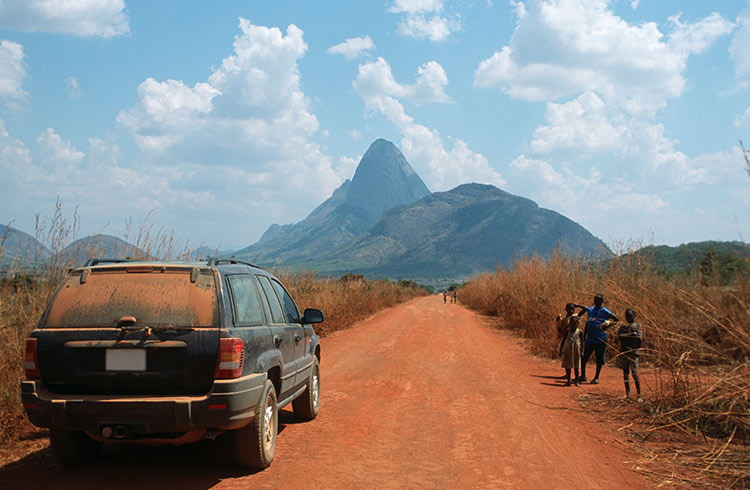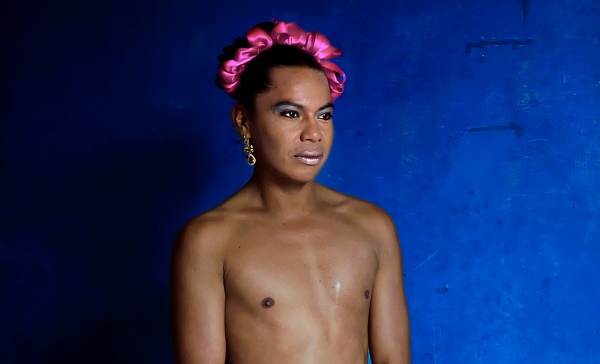Is Mozambique Safe? 4 Essential Safety Tips to Know
Mozambique's social issues have sadly become a feeder for crime and poverty as locals struggle to make ends meet. Here's what you need to know to stay safe.
 Photo © Getty Images/Mike Copeland
Photo © Getty Images/Mike Copeland
Before you go to Mozambique, it's worth finding out about issues associated with crime, poverty, inequality and corruption.
Robberies, assault, and carjackings are common in Mozambique, a southern African nation with 1,550mi (2,500km) of beautiful coastline, beaches and incredible diving opportunities.
However, according to the U.S. Department of State, the rate of violent crime is about the same as most other African countries, and the chances of being a victim are the same as any major American city. Still, while traveling in Mozambique, you should always be cautious of your surroundings and your belongings.
Crime in Mozambique
Most crime is concentrated in Maputo and the country's secondary cities. Criminals are forceful and ruthless, often work in groups, and carry firearms.
Travelers should reconsider their need to travel to Cabo Delgado in the north, due to ongoing crime and conflict from Islamist insurgency in the country.
Expats and travelers have been targeted in the past, so avoid showing any displays of wealth: jewelry, nice running shoes, cameras and wallets should be left locked up safely at your accommodation or hidden extremely well.
Maputo's coastal road (Avenida Marginal) has seen a spike in crime, and should be avoided, especially between the Southern Sun Hotel (the old Holiday Inn) and the Waterfront Restaurant. People have been mugged there in daylight.
Although coastal resort towns are much safer than the big cities, they are not crime-free. South African tourists have reported being robbed in the southern province of Inhambane and in the town of Chissibuca.
Walking at night is especially risky, and should be avoided, even in well-known tourist areas. Crimes do happen in public, in plain view of witnesses.
Women should try to avoid walking alone on beaches or taking busses unaccompanied. Unfortunately, attacks on female travelers have been increasing.
Law enforcement is weak, so don't expect the police to be very helpful, and be aware they do ask for bribes – avoid paying bribes. Emergency services are slow to respond due to bad road conditions and heavy pedestrian traffic.
If you're driving, don't stop to pick up motorists or pedestrians in distress. It could be a ruse by hijackers, so it's safer to keep driving and report trouble to a police station nearby.
Luggage safety
Flights to Mozambique often go through Johannesburg, South Africa, where the theft of goods from luggage is a ongoing problem. Checked baggage should be secured with TSA approved locks.
Valuables like currency, electronics, jewelry, cosmetics and running shoes should be taken in carry-on luggage. It's recommended to have a list of items you checked in, just in case a theft occurs. It might help with a travel insurance claim.
Civil unrest in Mozambique
Political demonstrations are rare in Mozambique, but if one happens, be vigilant. Protests can begin suddenly or change locations without warning.
While most tend to be peaceful, they can turn ugly quickly. In October 2019 violence and vandalism tainted mostly peaceful parliamentary elections. Back in 2010, protests against rising food prices also erupted in violence.
Local laws
- Make sure you carry identification at all times, and present it upon request. Notarized copies of the main passport page and the visa are usually enough, though you might be hassled for originals
- Possession, use, or sale of illicit drugs is forbidden. Penalties are severe
- Homosexual activity is illegal, so LGBTQ+ travelers may want to be discreet with public displays of affection
- Pedestrian traffic is outlawed in certain areas, like the presidential offices on Avenida Julius Nyerere and the Praça dos Herois in Maputo
- Photographing certain buildings is also illegal. Seek permission if you're not sure.
Related articles
Simple and flexible travel insurance
You can buy at home or while traveling, and claim online from anywhere in the world. With 150+ adventure activities covered and 24/7 emergency assistance.
Get a quote
2 Comments
MOZAMIBIQUE. is a good courty but the government need 2 work very hard 2 make the country grow
its true mozambique is a good contry but the goverment has to keep there citencens in control and if the cant then they might as well be a bad country